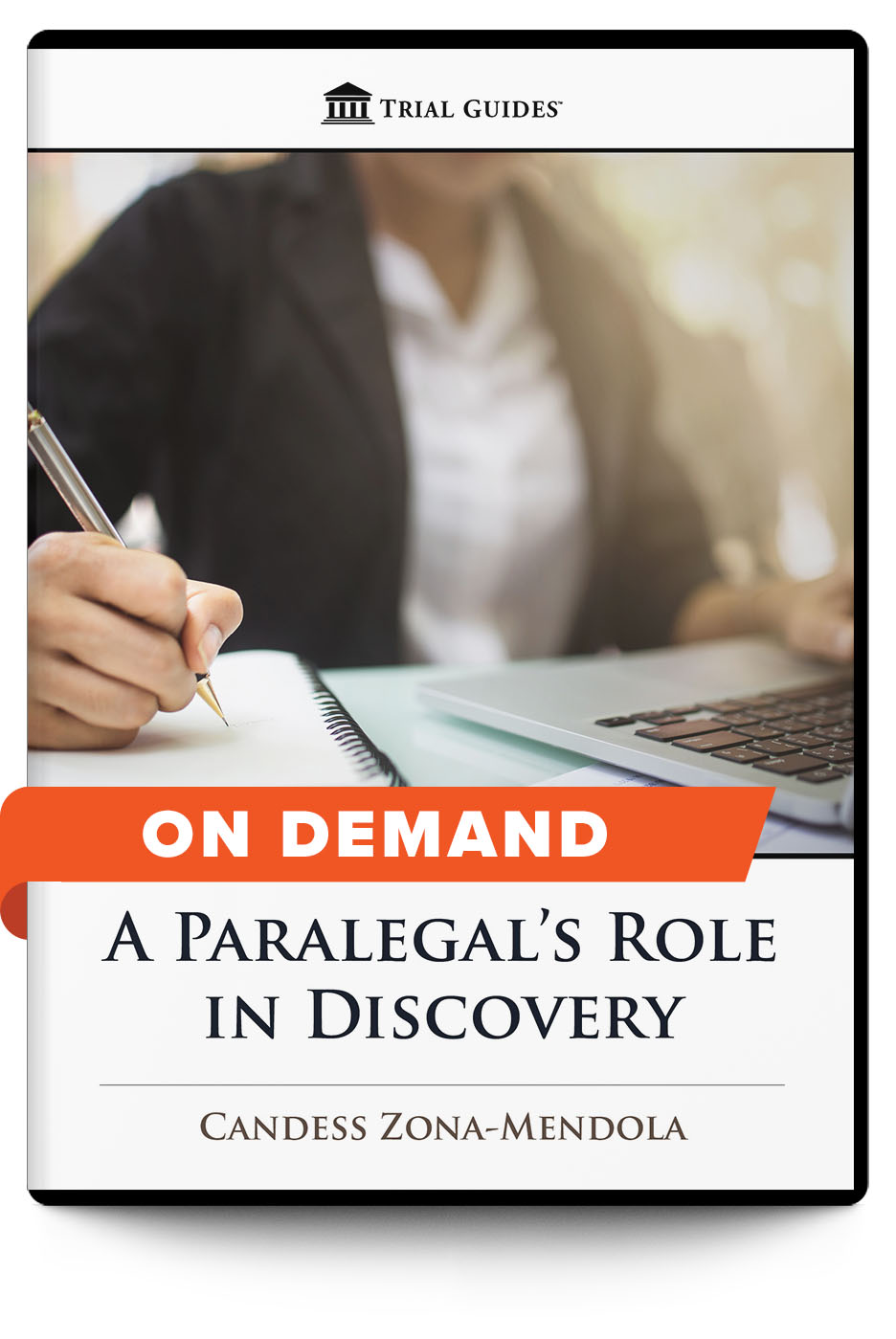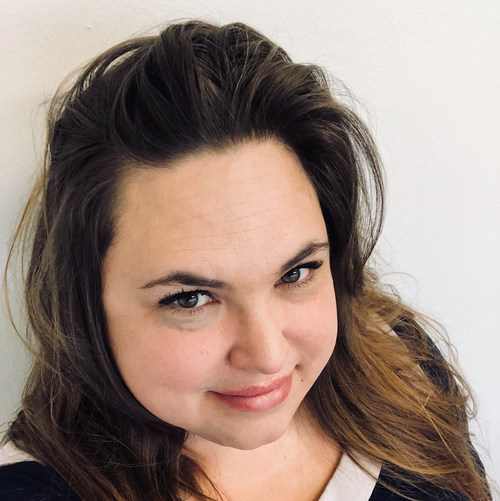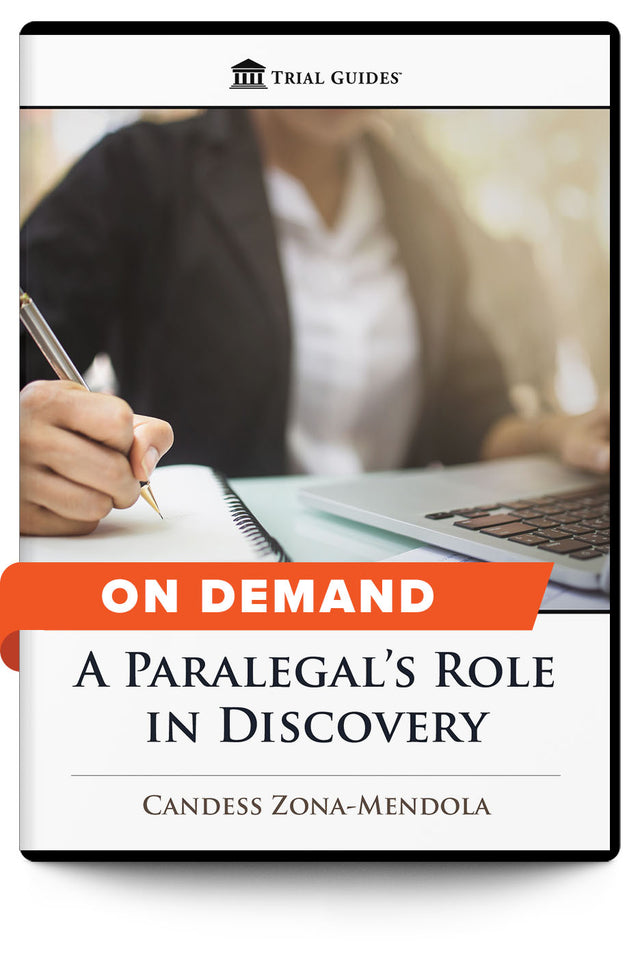Description
Description
Click here for Access Instructions for On Demand Programs.
Each attendee must register individually as they will need their own login to access the event.
For some legal professionals, “discovery” can be the hardest part of the case-preparation process. It can be confusing, overwhelming and cumbersome — not to mention fraught with bureaucracy and legal quagmires. Nonetheless, discovery is a crucial component in civil litigation cases, and it can make the difference between winning or losing a case.
As a paralegal in this field, you have a unique role in organizing and executing your supervisor’s discovery plan. The process of discovery asks the paralegal to become a “forensic journalist”: finding the story of your case, identifying the holes in your narrative, and learning where to find supporting documentation. Discovery can include gathering information from your client, taking witness testimony, using social media, submitting documents or records, and gathering information about the defendant.
Join Candess Zona-Mendola, senior trial paralegal and author of The Indispensable Paralegal, as she shares her secrets for preparing and conducting discovery for personal injury cases. This 60-minute webinar will cover:
- Examining the information you have
- Identifying the injuries, reviewing the intake paperwork, and understanding the law for your case type
- Getting the information you need
- Establishing an event chronology and collecting medical information, accident photos or video, and witness contact information
- Researching all parties in your case
- Preparing a complete defendant profile, including their criminal history, personal background, and social media presence; creating an expert witness profile
- Determining what you’re missing
- Including but not limited to: medical records, police reports, pathology, radiology, video surveillance footage, identifying documents, family statements, investigation reports, media reports, tax records, public records, etc.
- Obtaining missing information
- Including but not limited to: witness interviews, FOIA requests, written discovery, subpoenas, and developing a list of potential deposition questions and brainstorming other methods with your attorney
- Exploring additional research opportunities
- Science studies, medical journals, and expert checks
- Bringing it all together
- Crafting the story of the case and reevaluation/revisions
Each attendee must register individually as they will need their own login to access the event.
Author
Author
Details
Details
On Demand Program: 94 Minutes
Original Air Date: 05/03/2022




